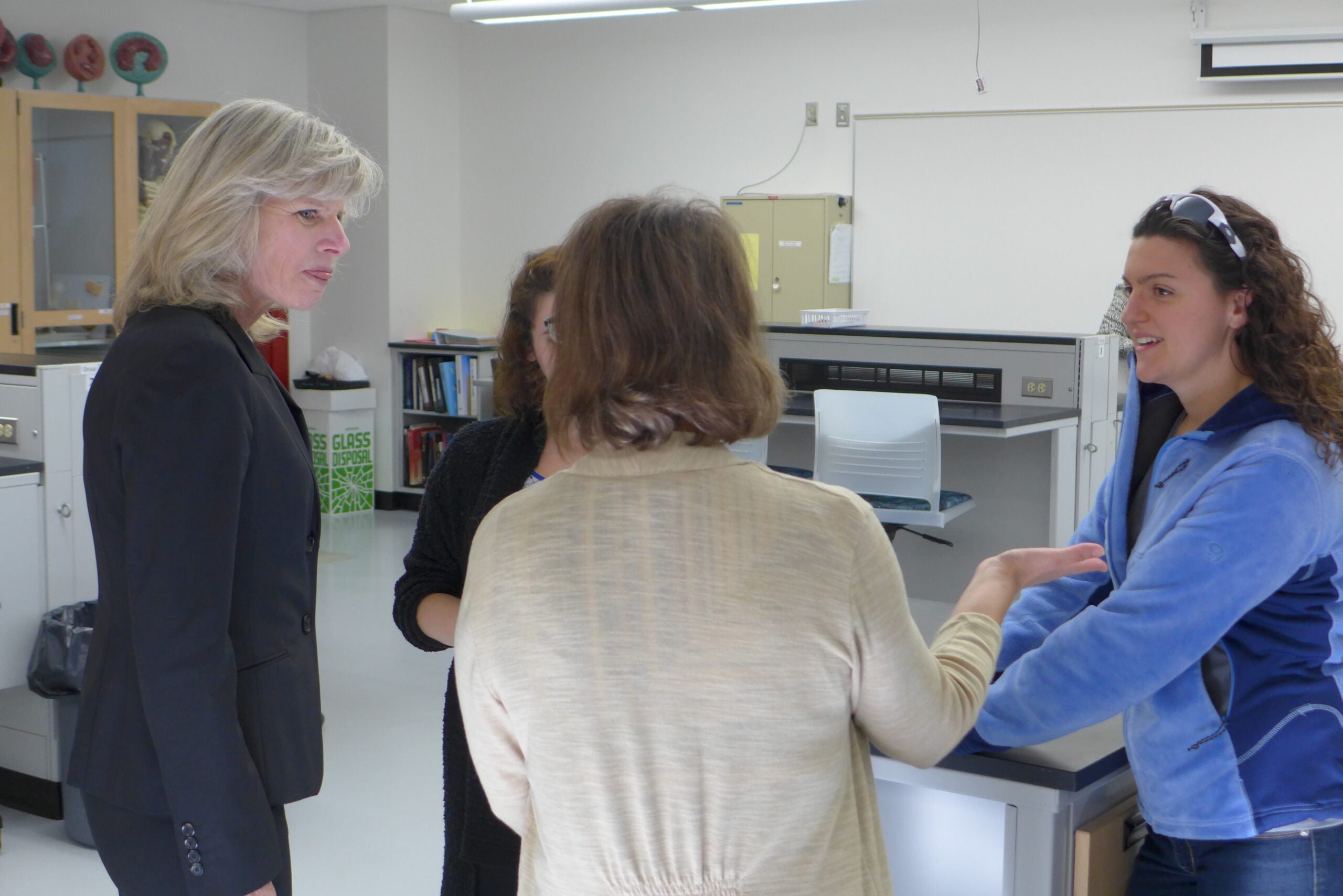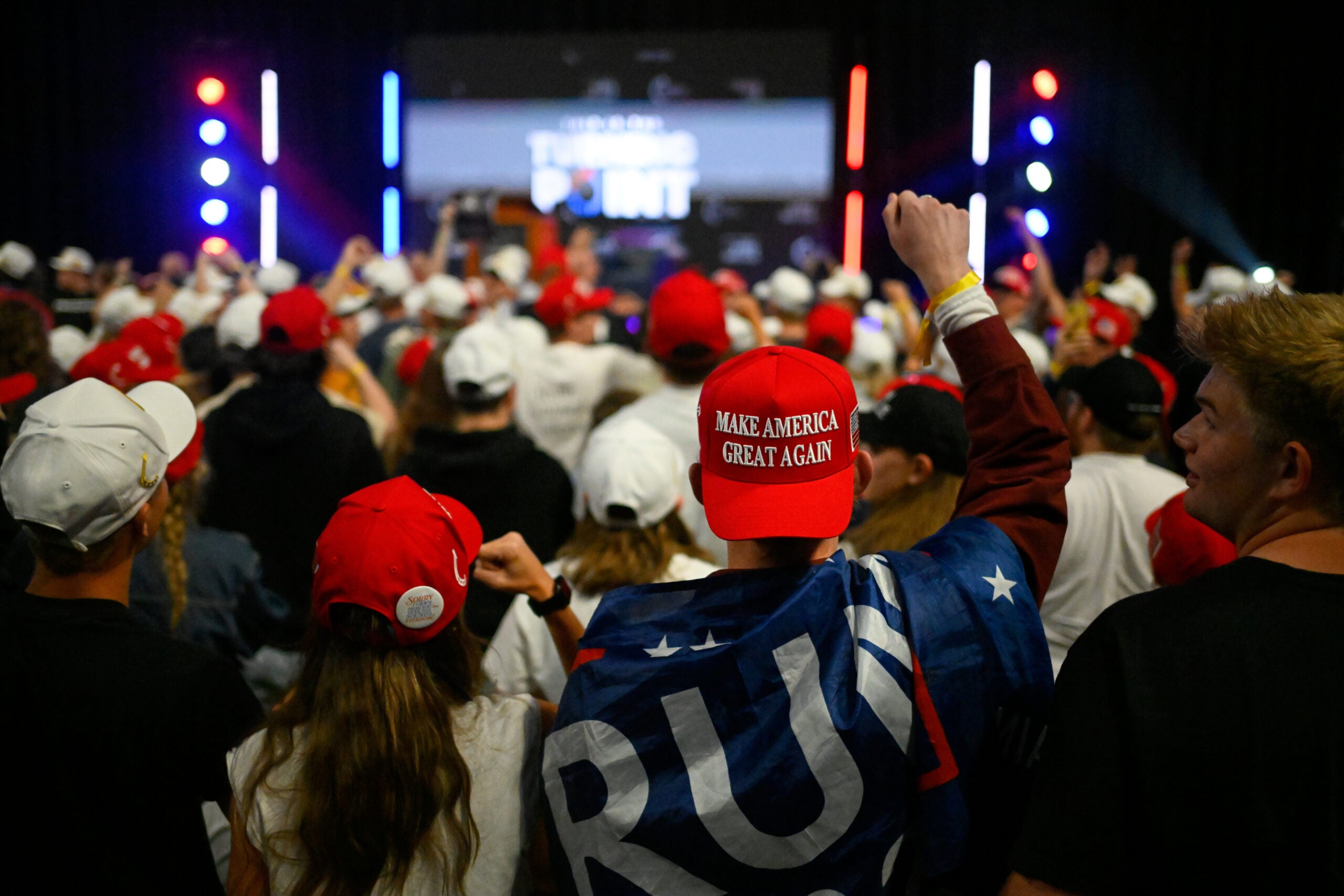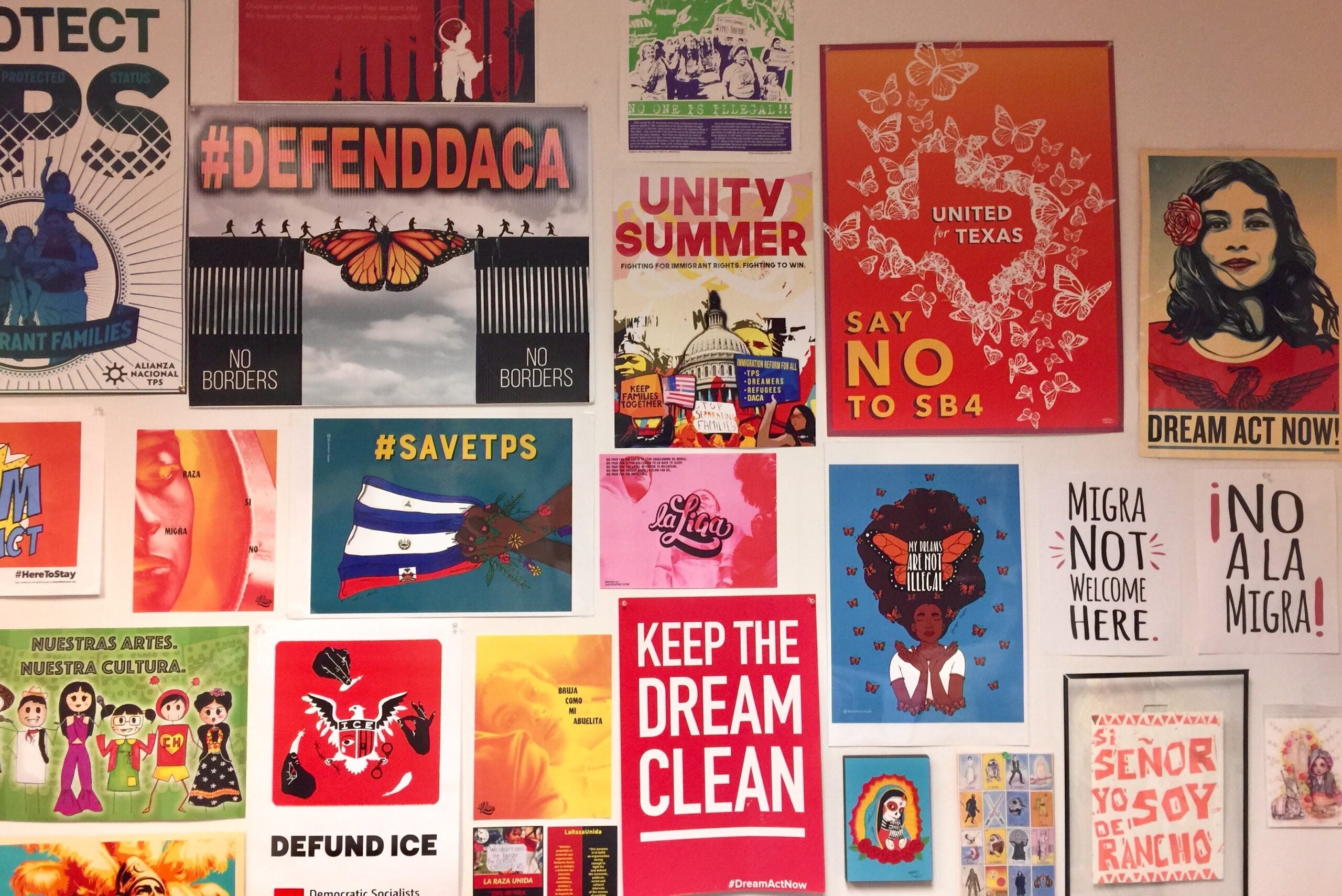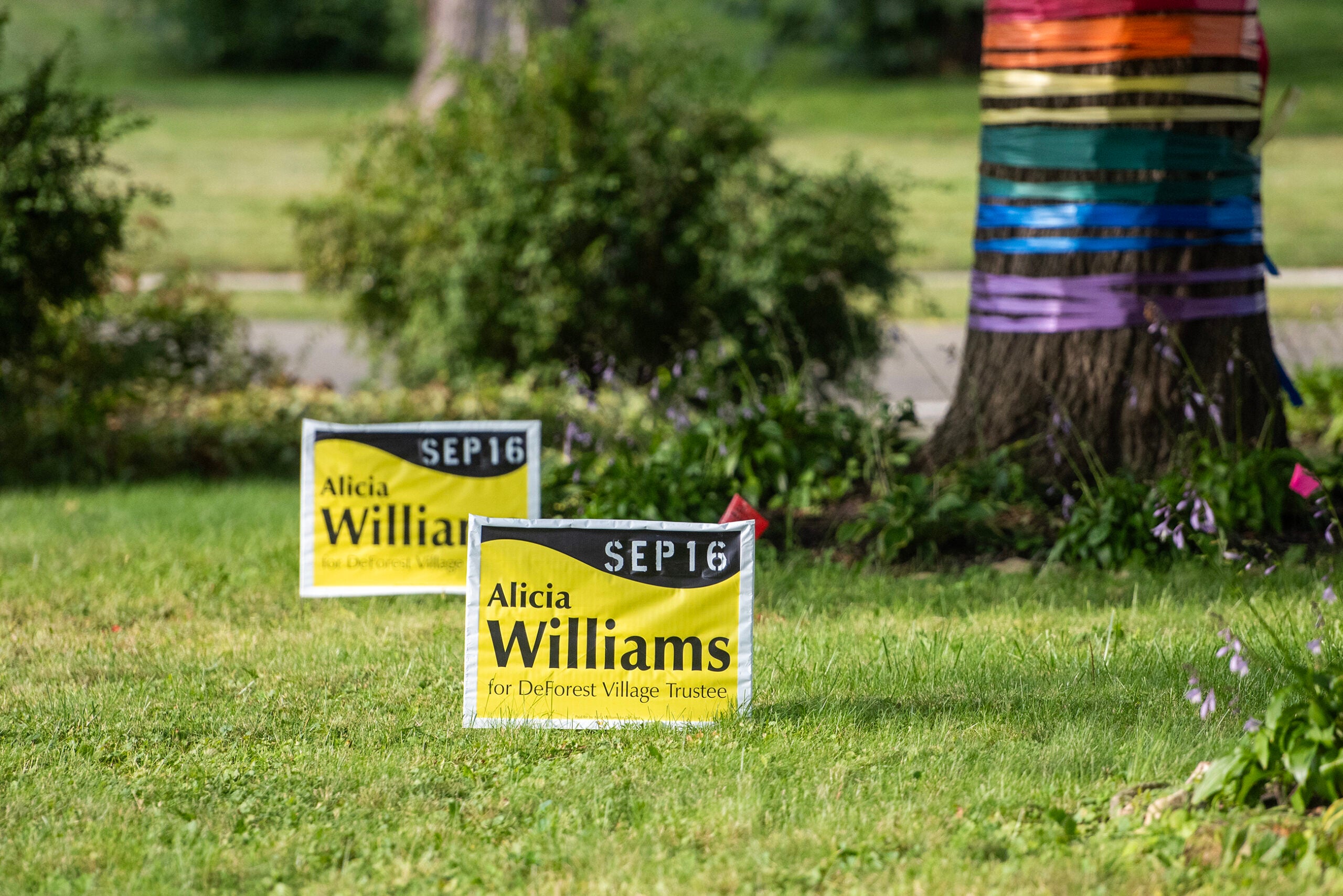For Democratic gubernatorial candidate Mary Burke, Wednesday, Oct. 22 was another day spent crisscrossing the state to try to energize her voter base, while also trying to lure a small percentage of undecided voters.
By the time reporters were allowed on her campaign bus, the sun was already high in the sky and the first of three stops were over. Burke appeared energetic, despite having risen hours before dawn to prepare for another day on the stump.
“This morning I was out of bed before 4:30,” said Burke. “I was just awake and it’s like, ‘OK, ready to go !’ I sleep well at night, though.”
News with a little more humanity
WPR’s “Wisconsin Today” newsletter keeps you connected to the state you love without feeling overwhelmed. No paywall. No agenda. No corporate filter.
Burke had just finished a newspaper editorial meeting in Eau Claire and was making her way to University of Wisconsin-Stout on a small used bus called “Benny.”
Burke is a former Trek Bicycle CEO and state commerce secretary, and is currently a Madison School Board member. She describes herself as a competitive person who likes to work. Like most candidates, she has a side the public rarely sees: in this case spontaneity and playfulness. When pressed on what she does during rare free moments on the campaign trail, Burke pulled out the card game Spot It and quickly challenged two reporters on the bus to a quick game.
She explained the rules: “What you do is turn over a card and it’s the person who first identifies something on the card that matches one of theirs,” Burke told the reporters.
After three lightening-speed rounds of the game, Burke went back to answering questions. As the bus rumbled down the road, Burke mentioned her campaign positions. Some have become fairly well-known, like her strong support of public education. Others, like her support for gun rights, are not.
Mary Burke’s campaign bus, nicknamed “Benny.” Photo: Shamane Mills/WPR News.
UW-Stout officials greet Mary Burke.” Photo: Shamane Mills/WPR News.
When Burke arrived at UW-Stout, she made a brief statement about the importance of higher education and then opened it up to questions. The first inquiry involved state help for a planned local development. It gets answered, but the second question — asked by a national reporter about what kind of president Scott Walker would make — does not.
“I don’t know. I wouldn’t comment on that,” she said, chuckling.
When pressed on why she wouldn’t, she said: “I’m focusing on running for governor of Wisconsin and I’d be happy to answer any questions with regard to that.”
How close the gubernatorial race is and what that might mean on the national stage is clearly on some people’s minds. Closer to home, however, people are concerned about jobs and the economy. Others like Nancy Kingsbury are concerned about how much they get paid. She wanted to know how Burke feels about raising the minimum wage. Burke wants to gradually increase it to $10.10 per hour.
Kingsbury said the current minimum doesn’t cut it.
“It’s ludicrous. You can’t make it on 7 and a quarter. You can’t,” she said.
Kingsbury’s main job is on campus doing data entry. She took a second job as a cashier when money got tight.
“At that time I was 61,” she said. “I was forced to work seven days a week full time. So I don’t want Walker back.”
Burke supports state workers contributing toward their health and pension benefits, something that was mandated by Act 10 — the law pushed through by Gov. Scott Walker that curtailed collective bargaining for public-sector unions. It also curtailed collective bargaining rights. That hasn’t been a big issue in this race, but polls show the minimum wage could be. Burke knows this.
“Walker wants to stand in the way of doing this, and to me it’s about common sense,” said Burke. “I want to make sure people who are working hard can support themselves without government assistance.”
As 19-year-old Eric Huse listened to Burke, he wasn’t convinced on the need to raise the minimum wage. He works as a retail store supervisor.
“I’m a little bit concerned that if we do raise the minimum wage, it’s going to drive prices up in retails markets,” said Huse.
Huse said he hasn’t decided yet which candidate to support, meaning that he’s part of a small group of voters both campaigns want to woo. A majority are already firmly in one camp or the other.
Wisconsin Public Radio, © Copyright 2025, Board of Regents of the University of Wisconsin System and Wisconsin Educational Communications Board.







